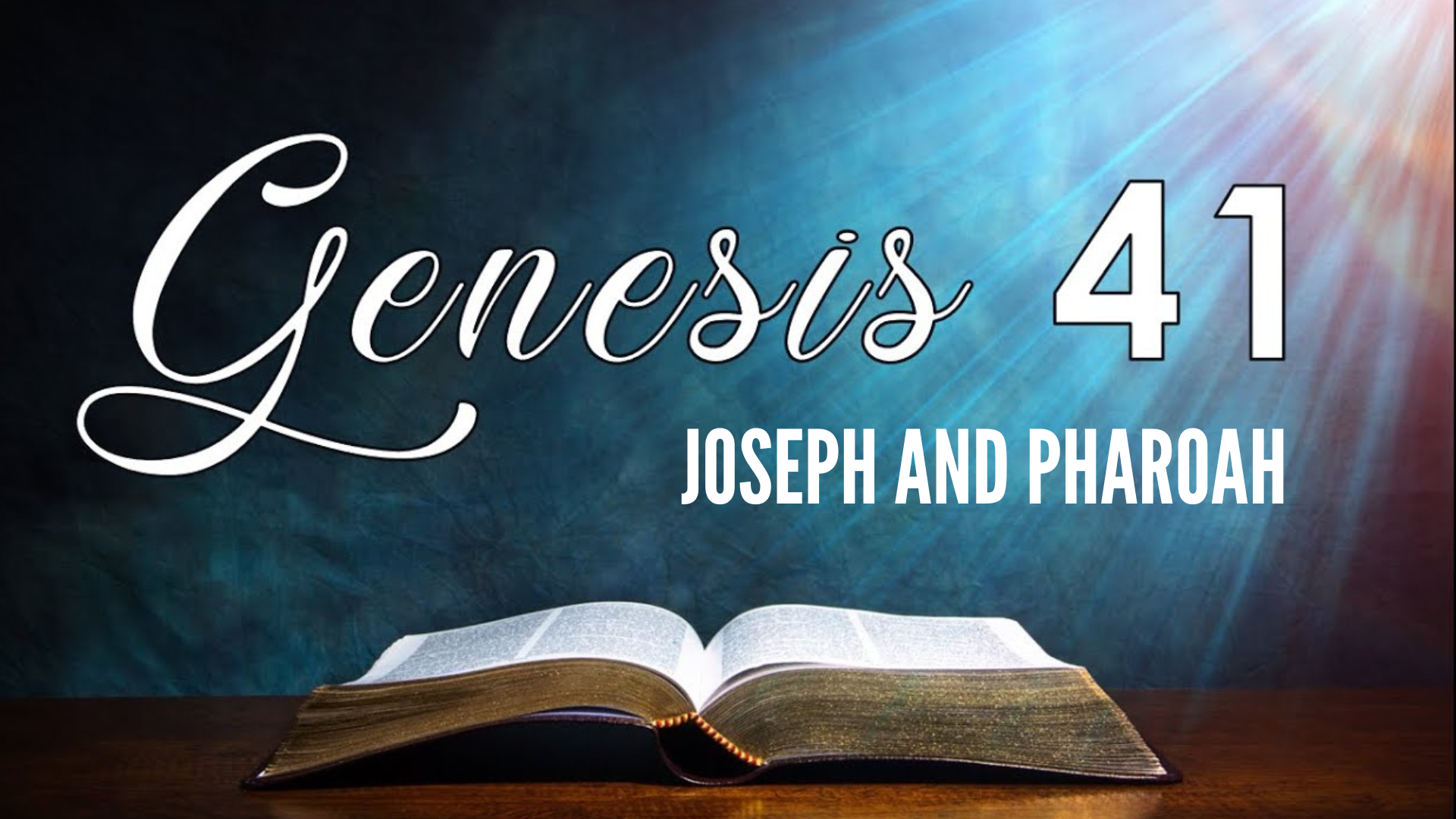A NEW ERA BEGINS
1. JOHN'S BIRTH FORETOLD (Luke 1:5-17)
A. A Godly Home (Luke 1:5-7)
B. Service to God (Luke 1:8-12)
C. Promise of a Son (Luke 1:13-17)
2. ZECHARIAH'S REACTION (Luke 1:18-25)
A. Assurance From Gabriel (Luke 1:18-20)
B. The People’s Response (Luke 1:21-22)
C. Praise From Elisabeth (Luke 1:23-25)
3. JOHN'S BIRTH (Luke 1:57-68, 80)
A. Naming the Child (Luke 1:57-63)
B. Glorifying God and Prophesying (Luke 1:64-68)
C. Growing Strong in Spirit (Luke 1:80)
Central Truth: The era of God’s grace that began with the birth of John the Baptist is still in effect today.
Focus: Acknowledge and appreciate that, with John’s birth, a new era of God’s grace began.
Evangelism Emphasis: The Holy Spirit enables us to help prepare the way for people to believe in Christ.
Text: “Blessed be the Lord God of Israel; for he hath visited and redeemed his people” (Luke 1:68).
INTRODUCTION
The account of Christ’s life as recorded by Luke is especially elegant and sensitive. Unlike Matthew, Mark, and John, who were Jews, Luke was a Greek, and his writing bears the marks of Greek literary beauty and precision. As a companion of Paul, as well as being a Greek, Luke understood the necessity of spirituality and the benefit of learning. He was known as “the beloved physician” (Col. 4:14), which suggests he was a person of considerable skills and learning. Formerly a minister of medical care, he became a minister and chronicler of the life of Jesus, the Great Physician.
The Gospel according to Luke is the first part of a two-part record of Christianity, the second part being the Acts of the Apostles. Luke inscribed both of his works to a person named Theophilus, probably a man of high rank who desired thorough knowledge of the life of Christ and the work of His followers. In ancient times, most literary works were sponsored by persons of wealth or authority. Frequently the published work was inscribed to the sponsor, as Luke addressed his works to Theophilus.
The life of Christ properly begins with the birth of John the Baptist. There has to be a period of preparation before the world would be ready to receive the Son of God. John the Baptist was born for the specific purpose of preparing the way for the Messiah. Because of his special place in God’s redemptive plan, John was a unique person. The circumstances surrounding his birth emphasize this uniqueness.
1. JOHN’S BIRTH FORETOLD
A. A Godly Home (Luke 1:5-7)
5 There was in the days of Herod, the king of Judaea, a certain priest named Zacharias, of the course of Abia: and his wife was of the daughters of Aaron, and her name was Elisabeth. 6 And they were both righteous before God, walking in all the commandments and ordinances of the Lord blameless. 7 And they had no child, because that Elisabeth was barren, and they both were now well stricken in years.
Jesus and John the Baptist were born in troubled times. Judea was occupied by the military forces of Rome and was governed by rules approved by Rome. Herod, known in history as Herod the Great, was king of Judea. He was an Idumean and not a Jew, a fact deeply resented by the Jews. Herod died in 4 BC, so we know the events of this lesson occurred before that time.
Zechariah (or Zacharias) was a priest who was married to a woman also of priestly lineage. This gave a double distinction to the couple, for a priest did not always marry a woman of priestly background. The Jewish priesthood in those days was divided into twenty-four divisions, of which Abia’s was one. This means simply that Zechariah was a member of that particular group of priests.
Verse 6 says Zechariah and Elisabeth were outstanding in their devotion to God. They kept the Law with such strictness and sincerity that they were beyond reproach in their service to Him.
Despite their devotion to God, Zechariah and Elisabeth had reached advanced age without the blessing of a child. Childlessness in a Hebrew home was regarded as a special calamity and was frequently interpreted as a mark of divine displeasure. Elisabeth was an older woman, well beyond the age of childbearing, so there was no way for their lamentable situation to be changed.
- Why do you suppose God allowed this godly couple to be barren?
B. Service to God (Luke 1:8-12)
9 According to the custom of the priest's office, his lot was to burn incense when he went into the temple of the Lord.
11 And there appeared unto him an angel of the Lord standing on the right side of the altar of incense. 12 And when Zacharias saw him, he was troubled, and fear fell upon him.
It is estimated there were twenty thousand priests in Palestine at this time. These were divided into twenty-four divisions, and each division ministered in the Temple for one week twice a year. Since there were hundreds of priests in each division, the particular service of each priest was chosen by “lot” (v. 9), which was a form of drawing names at random in order to find God’s will. The burning of incense was a highly coveted responsibility among the priests.
The burning of incense occurred twice daily, in the morning and in the evening. The worshipers, which consisted of male Israelites, gathered in the court of Israel at the time of burning incense. The fact that a “multitude” (v. 10) was gathered indicates this event happened on the Sabbath Day or some high day of the Jewish year. It should be observed that God selected the Temple, the holiest spot in Jewish worship, to begin the most significant series of events that would lead to the advent of the Messiah.
In the Scriptures, angels were especially used for divine pronouncements to people. These messengers of God appeared to Abraham to announce that he and Sarah were to have a son (Gen. 18:1-11); they appeared to Lot to announce the destruction of Sodom and Gomorrah (19:1-13); and an angel announced the birth of Samson to Manoah and his wife (Judg. 13:2-3).
Sight of the angel “troubled” Zechariah, for he could not understand what it meant (Luke 1:12). The sense in which “fear” is used here is that he was amazed and wondered what the significance of the appearance might mean. Fear, or awe, is an appropriate reaction to divine interposition.
The Ministry of Angels
Like us, angels were created to praise and glorify God. And, although we are of different worlds and assigned to different jobs, miraculously we join in the rich purpose of surrendering to His perfect will.—Charles R. Swindoll
C. Promise of a Son (Luke 1:13-17)
13 But the angel said unto him, Fear not, Zacharias: for thy prayer is heard; and thy wife Elisabeth shall bear thee a son, and thou shalt call his name John. 14 And thou shalt have joy and gladness; and many shall rejoice at his birth.
16 And many of the children of Israel shall he turn to the Lord their God.
The message of the angel to Zechariah was that his prayer had been heard. We are not told what the prayer was, but it was apparently for a son, inasmuch as the urgent concern of every Jewish man was that he have an heir. Very possibly, however, Zechariah had also prayed for the coming of the Messiah, which was the frequent prayer of devout people of Israel. The immediate response to the priest’s prayer was that a son would be born, and he was to be named “John” (v. 13), which means “God is gracious.”
The birth of a boy would bring “joy and gladness” (v. 14) to the parents—especially because the son would be born in their old age. Beyond this private joy of his parents, the life of John would bring national and even universal rejoicing.
John was to be no ordinary person, but one “great in the sight of the Lord” (v. 15). He was to have a special character and a special purpose. “He must never touch wine or other alcoholic drinks” (v. 15 NLT). He would be qualified for his mission by a filling of the Holy Spirit even before his birth. John would be “great” because of his spiritual power, and because of the special service he would render to God.
The ministry of John would be to “turn” the thoughts of Israel to God (v. 16). He would precede the Messiah with prophetic spirit and power. What Elijah had been in his generation, John would be in his (v. 17). By divine energy and purpose, he would make people conscious of God and their need of repentance. In this way the people would be prepared for the coming Messiah.
- What aspects of John the Baptist’s ministry are needed today?
2. ZECHARIAH’S REACTION
A. Assurance From Gabriel (Luke 1:18-20)
18 And Zacharias said unto the angel, Whereby shall I know this? for I am an old man, and my wife well stricken in years. 19 And the angel answering said unto him, I am Gabriel, that stand in the presence of God; and am sent to speak unto thee, and to shew thee these glad tidings. 20 And, behold, thou shalt be dumb, and not able to speak, until the day that these things shall be performed, because thou believest not my words, which shall be fulfilled in their season.
After the angel’s announcement, Zechariah was emboldened to speak to him. He questioned how he and Elisabeth could have a son which, naturally speaking, would be impossible, for both had advanced beyond the years of childbearing.
The angel reassured the aged priest by identifying himself as Gabriel, which means “mighty one of God.” Gabriel emphasized that the “glad tidings” (v. 19) were not his own, but were of God. He was simply a messenger who had come from the presence of God to announce what God had determined to do.
Zechariah had asked for a sign that Gabriel’s message was true (v. 18), and Gabriel told him what that sign would be: the priest would be unable to speak until the promise was fulfilled (v. 20). Because the priest had spoken in unbelief, he would not be able to speak again until his son was born.
- What does this passage reveal about the promises of God?
B. The People’s Response (Luke 1:21-22)
21 And the people waited for Zacharias, and marvelled that he tarried so long in the temple. 22 And when he came out, he could not speak unto them: and they perceived that he had seen a vision in the temple: for he beckoned unto them, and remained speechless.
Habitually the people who prayed in the court remained there until the priest emerged from the Holy place (where the altar of incense stood) to pronounce a benediction or blessing upon them. Generally he did not remain in the sanctuary for a long period of time, but dispatched his duties and soon returned to the people. The people waited, therefore, for Zechariah to emerge. But the priest did not return quickly; and when he did so, he was unable to speak—either to bless them or dismiss them.
When he gave his blessing with signs rather than with speech, the people concluded he was still entranced by some vision he had seen. There may also have been a look on his face similar to that which Moses had when he came down from the mountain after seeing God (Ex. 34:30). Just as Moses had seen God face-to-face, Zechariah had experienced Him through His messenger Gabriel.
C. Praise From Elisabeth (Luke 1:23-25)
25 Thus hath the Lord dealt with me in the days wherein he looked on me, to take away my reproach among men.
Zechariah remained at the Temple until his period of service there was completed, which was generally one week. Only then was he able to return to his own house and share the angelic tidings with Elisabeth. He probably lived near Jerusalem, but there is some belief that he lived in Hebron, a priestly city in the south of Judea.
Among Jewish women, it was a reproach to be childless. Elisabeth’s secluding herself for five months indicates her degree of amazement at what had happened. Even though she conceived a child as the angel had promised, she remained in seclusion until her pregnancy was apparent to all. It is natural that a woman of advanced age would need such a period of privacy in order to grasp the significance of her situation. She spent this time in preparing herself for the divine service that had come upon her. Her praise to God reflects this saintly attitude.
God’s Ways
God’s ways and His delays can be confusing because what God uses to accomplish His will can go against human logic and common sense.
—Anne Graham Lotz
3. JOHN’S BIRTH
A. Naming the Child (Luke 1:57-63)
57 Now Elisabeth’s full time came that she should be delivered; and she brought forth a son. 58 And her neighbours and her cousins heard how the Lord had shewed great mercy upon her; and they rejoiced with her. 59 And it came to pass, that on the eighth day they came to circumcise the child; and they called him Zacharias, after the name of his father. 60 And his mother answered and said, Not so; but he shall be called John. 61 And they said unto her, There is none of thy kindred that is called by this name. 62 And they made signs to his father, how he would have him called. 63 And he asked for a writing table, and wrote, saying, His name is John. And they marvelled all.
As was customary, the relatives and neighbors of Elisabeth joined in rejoicing at the birth of the child. It was a reproach for a woman to be childless, and Elisabeth had reached an advanced age in such a circumstance. Added to her long state of barrenness were the strange circumstances of her pregnancy. The entire countryside had heard of Zechariah’s experience in the Temple, and of his subsequent loss of speech. Inevitably, there would be many questions and doubts about the situation. No matter what doubts existed, the hand of God was seen in the birth of the child, and the witnesses could do nothing but rejoice.
Since the time of Abraham, circumcision had been the covenant sign between God and the Jewish people (Gen. 17:11). Circumcision of all male children took place on their eighth day. It was a solemn day, when all of the relatives of the male child were invited to be witnesses of the covenant fulfillment. It was also the custom of the Jews to name the child at the time of circumcision. Because names were of great significance, the naming was associated with the solemn rite of circumcision.
As still occurs today, the relatives of the child felt free to urge their choice of a name upon the parents. They felt the child should be named Zechariah after his father. As it is now, it was common to give the first son his father’s name. This seemed especially appropriate since this child had been born when his parents were advanced in age and had long since forsaken any hope of having a child.
Elisabeth was the first to protest the boy being given his father’s name. It is almost certain Zechariah had told her how the angel had instructed him to name the child John. She was also aware that his affliction of muteness was a sign regarding the name.
The relatives protested to Elisabeth that John was an inappropriate name: none of his forefathers had borne such a name. The relatives turned to Zechariah himself for support. It is strongly indicated here that the old priest was deaf as well as mute, for his kinsmen had to make signs to him. If he had been of sound hearing, they would have appealed to him by voice. It is likely that both hearing and speech had been taken away at the time the angel visited him.
Zechariah called for a writing tablet—a flat piece of wood covered with wax. Letters were cut into the wax with a sharp-pointed stylus. Zechariah corroborated the position of Elisabeth, but his words were more emphatic. Elisabeth had said, “He shall be called John” (Luke 1:60), but he said, “His name is John” (v. 63). To him the name was not a matter of debate or deliberation; it was God’s choice, and not his or theirs.
- When must we disregard tradition?
B. Glorifying God and Prophesying (Luke 1:64-68)
64 And his mouth was opened immediately, and his tongue loosed, and he spake, and praised God. 65 And fear came on all that dwelt round about them: and all these sayings were noised abroad throughout all the hill country of Judaea. 66 And all they that heard them laid them up in their hearts, saying, What manner of child shall this be! And the hand of the Lord was with him. 67 And his father Zacharias was filled with the Holy Ghost, and prophesied, saying, 68 Blessed be the Lord God of Israel; for he hath visited and redeemed his people.
The obedience of Zechariah resulted in his immediate healing. His power of speech returned, and his first words were words of praise to God. The long period of silence had built up in the old priest a reservoir of praise and adoration. He waited only for an opportunity to express what he felt in his heart.
News of the priest’s restoration of speech spread rapidly through the hill country of Judea. Coupled with this was the story of his determination to name his son John. A reverential fear came upon the people as they reflected on all the things that had happened, climaxed by the birth of John (v. 65).
There were many things about the child that marked him as a special person, and the people were aware of his uniqueness (v. 66). There was the miraculous appearance of the angel Gabriel; the miraculous conception of the barren Elisabeth; the determination of the parents to name their son John; the sudden healing of Zechariah’s muteness; and, finally, the nature of his prophetic utterance. The people wondered about these things and contemplated what they might mean. It was common for Jewish families to anticipate the Messiah, and some wondered whether John might be the Messiah.
Verse 67 says Zechariah was “filled with the Holy Ghost,” but we are not to conclude that his experience was like that of the disciples on the Day of Pentecost. It was a spirit of anointed prophecy that came upon him. The priest’s speech had come back to him, and the Holy Spirit anointed him to speak all that was in his heart.
As had Elisabeth and Mary, Zechariah spoke of the present and the future as if they were already accomplished. In his prophecy, he foresaw the age of the Messiah, in which God would visit and redeem His people Israel. This entire hymn of praise (vv. 68-79) has the advent of the Messiah in view.
God at Work
From the beginning, the Holy Spirit has been at work in the world. Judges performed miracles. Priests received divine revelations. Musicians sang and composed songs in the Spirit. Prophets declared the will of God in spoken and written messages.—Horace S. Ward
C. Growing Strong in Spirit (Luke 1:80)
80 And the child grew, and waxed strong in spirit, and was in the deserts till the day of his shewing unto Israel.
The conclusion of Zechariah’s prophecy concerns the nature of his son’s ministry (vv. 77-79). God would use John to bring about spiritual revival as preparation for the coming of the Messiah.
Verse 80 says John indeed did grow up as a man of God who was “strong in spirit”—he developed godly character, whereby he could minister with integrity. Once an adult, John lived in the wilderness until his ministry began.
A ROUGH DIAMOND
The life of John the Baptist was integral to the life of Jesus Christ. The threads of their earthly lives were twined together into a single cord even before their births. This cord was strengthened by the fact that Mary and Elisabeth were cousins, which means Jesus and John were distant cousins in their earthly relationship.
Before Christ and His mighty ministry burst upon the world, a period of preparation was necessary. It was for this preparation that John the Baptist was born. He had to be a rough diamond in order to cut through the hard surface of carnality that gripped the world. He was a unique individual, much like the prophets before him and much like the apostles after him. He was, in fact, a blending of the two. He can be called the last prophet of the older era and the first apostle of the new era.
Daily Devotions
M. The Light Shines in Darkness (Isaiah 9:1-3)
T. A Voice in the Wilderness (Isaiah 40:1-5)
W. Hearts of the Fathers (Malachi 4:1-6)
T. The Holy Spirit and Fire (Luke 3:15-18)
F. The Kingdom of God Advances (Matthew 11:7-15)
S. The Mystery of Ministerial Authority (Mark 11:27-33)
Adopted from the Evangelical Sunday School Lesson Commentary 2021-2022.









